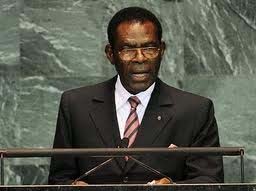Land: Solution to poverty, hunger?
themselves feel and experience in their daily lives. There are various views expressed by people from different countries in the developing world.
One man from South America said that his community does not experience hunger and poverty due to the fact that the people have land from which they harvest enough food to feed themselves. Other people from some countries reported that their lives were dire because they did not have money to buy food in the cities and towns where they live. Some were finding life difficult as they lived in squatter camps.
Recently, at the United Nations, President Mugabe told the UN general Assembly that land resettlement was a way of combating hunger and poverty. Many developed countries spend a lot of money supporting their farmers not only to feed themselves but also to produce enough food for those in the towns and cities.
These countries actually produce surplus food which they sell to the UN food programme for distribution to poor in developing countries. But the problem of hunger and poverty can only be eliminated by land distribution where those in the rural and commercial areas can get adequate government support.
Will the land be enough for so many people who live in the countryside? For countries, such as Rwanda, which has a population density of 230 people per square kilometre compared to the world average of 80 people per square kilometre?
Land resettlement can only be a stop-gap measure.
Another issue that is of concern is not that there is not enough land but that a few people in many countries hoard land at the expense of those who desperately need it. For example, it has been reported that some countries that have, for years introduced a system of land tenancy have kept many people or peasants in poverty. If this land was evenly distributed, hunger and poverty could be alleviated but not necessarily eliminated. What is of concern is that some oil producing countries, such as Saudi Arabia, Kuwait and Libya have eliminated hunger and poverty by distributing the wealth from oil among the population.
In China they took a very serious population control by limiting each family to one child in the cities and two children in the rural areas. Although this policy has been criticised by human rights organisations, it has eliminated hunger and poverty in China.
At present, China is even propping up the USA economy through loans and Africa through loans and investment. The developing world will find it difficult to eliminate hunger and poverty through land distribution alone. To start with, many sections of society have more land than they are capable of working efficiently while millions of people are still landless.
The solution could lie in reducing land holdings from as much as three thousand hectares to one farmer to about five hundred hectares. At independence, some farmers had about thirty thousand hectares each. This surely was unacceptable. In some developed countries, they have now resorted to intensive farming where the land holding is small but well developed. Some have an allocation of about 50 hectares where they raise dairy cows and sell enough milk to earn income to sustain themselves.
They buy hay from farmers that grow it commercially. Another development in these countries is where urban people buy shares in these small farmers to invest their surplus money and want to support agriculture. Some urbanites actually buy their on cows and lend them to the farmers to look after for a fee. The reason being that city dwellers feel happy to identify with the farmers. In Zimbabwe, there is a lot of land that is owned by ARDA which could be rented or even be managed by the authority on behalf of farming operations by those living in the cities and towns.
The urban people with excess money to invest could do this through ARDA. If there are many people who could invest in farming operations, they could form an association and elect a board of directors to look after their interests. The major problem the Government faces is the lack of resources from taxes to implement especially, farming operations on land it controls. The creation of jobs through factories and mining operations will not only be adequate but is going to be a slow process. Many peasants and factory workers have left the country for South Africa to work on that country’s farms.
With the country using a multicurrency economy, there is no doubt that most of the workers that have left the country would come back to work on the well funded farming estates. There are many people who are not interested to own a farm but are willing to make their money do the work on Government owned land as long as they will get a return on their investment.
The Ministry of Agriculture, Mechanisation and Irrigation Development would only be required to put in place experienced technical management to safeguard the investors’ funds. Hunger and poverty could either be eliminated or alleviated through proper land redistribution and investment by those living in the cities with surplus money. But the uncontrolled birth rates will make it more difficult to achieve this goal of reducing hunger and poverty in developing countries.








Comments